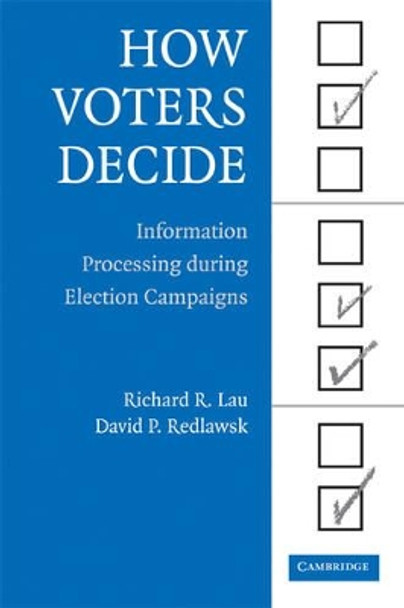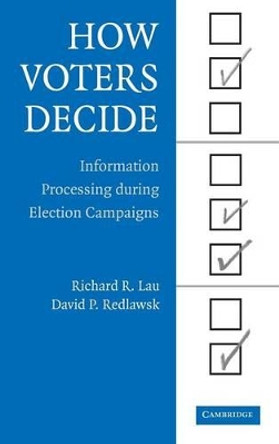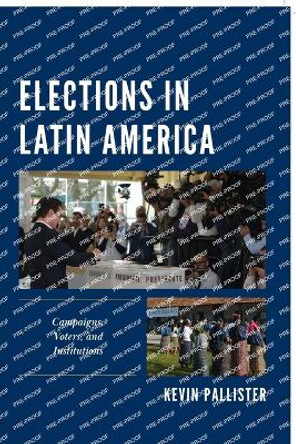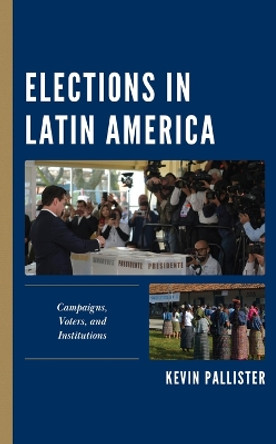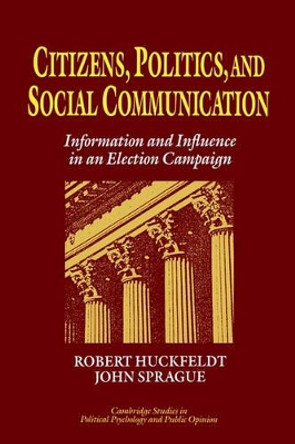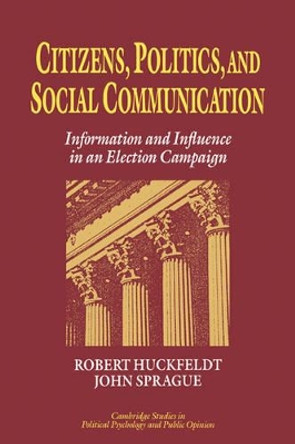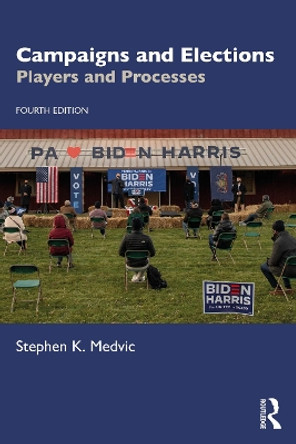Description
This 2006 book proposes a new framework for studying voter decision making.
About the Author
Richard Lau is Professor of Political Science and Director of the Walt Whitman Center for the Study of Democracy in the Political Science Department at Rutgers University. His research has been supported by the National Institute of Health, the National Science Foundation, the Ford Foundation, and the Carnegie Corporation. He has published in all of the major journals in political science and social psychology, and recently wrote (with Gerald Pomper) Negative Campaigning: An Analysis of U.S. Senate Elections (2004). David P. Redlawsk is Associate Professor of Political Science at the University of Iowa. Prior to completing his Ph.D. and arriving at the University of Iowa in 1999, Redlawsk spent nearly ten years in the technology industry, managing information systems for colleges, and working as a management consultant. As a political scientist, he has published in the American Political Science Review, the American Journal of Political Science, the Journal of Politics and Political Psychology, among others. He twice received the Roberta Sigel Best Paper Award from the International Society of Political Psychology. He co-edited Hate Speech on Campus: Cases, Commentary, and Case Studies (1997) with Milton Heumann and Thomas Church, and is currently completing an edited volume on emotion in politics to be published in 2006. His research has been supported by the National Science Foundation.
Reviews
"How Voters Decide: Information Processing during Election Campaigns is a major contribution to our understanding of voting behavior, decision making, and political psychology. Richard Lau and David Redlawsk have employed an innovative methodology to investigate the processes by which voters make sense of the enormous flow of information in a election campaign. The research is carefully designed and analyzed and the results yield insights into mechanisms of political information processing that are normally hidden from view by the standard research methods used in political science. This research shows how the strategies that people use to process information affect the electoral decisions they make and, ultimately, the extent to which elections truly represent the interests of voters." Stanley Feldman, Stony Brook University
"This innovative and exciting book sheds new light on the mysterious process at the heart of democracy: how voters choose among candidates. Lau and Redlawsk develop a range of new techniques to illuminate the otherwise hidden process of candidate choice with consistently interesting and often unexpected results." Martin Gilens, Princeton University
"This book is potentially a landmark in the history of voting behavior research. It takes on the whole structure of theory about voting in virtually all its aspects, about as wide-ranging as The American Voter of 40 years ago, and does so with unusual quality." James Stimson, University of North Carolina, Chapel Hill
"The authors have provided a fresh, innovative perspective...for graduate students, faculty and researchers in political science. it is required reading. Highly recommended." -- Choice
"This book will be of interest to political scientists and cognitive psychologists for its innovative methodology." PsycCritiques
"Anyone committed to understanding voter behavior should read this book, which integrates many years of research. How Voters Decide offeres a novel approach to studying voter cognition, and it yields provocative and detailed findings about memory, heuristics, and decision making that go far beyond this brief review." - John Gastil, University of Washington
"How Voters Decide makes three critical contributions: proposing a process-oriented framework, testing this framework, using a dynamic information environment, and outlining a variety of findings that raise critical questions for future research." - Samuel J. Abrams, Harvard University
2007 Outstanding Academic Title -- Choice Magazine
Book Information
ISBN 9780521613064
Author Richard R. Lau
Format Paperback
Page Count 366
Imprint Cambridge University Press
Publisher Cambridge University Press
Weight(grams) 540g
Dimensions(mm) 229mm * 152mm * 21mm

